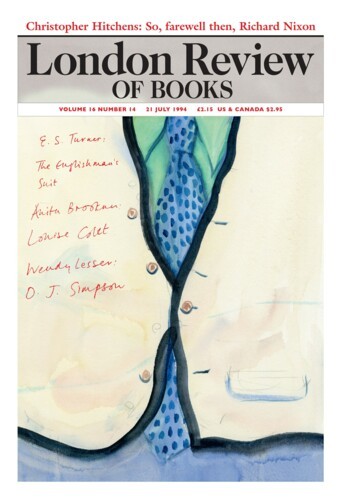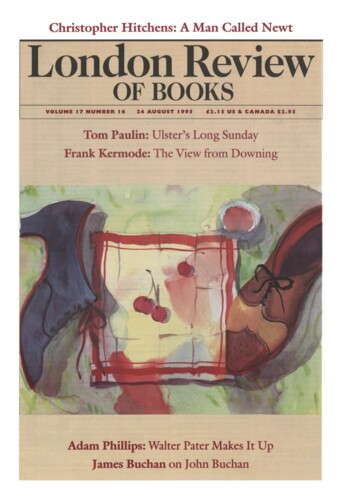Diary: The Best Thing since Sex
Robert Irwin, 2 December 1993
I have been working on a review of a facsimile edition of Vivant Denon’s Voyage dans la Basse et la Haute Egypte (first published in 1802). After only a couple of hours of typing and revising, I am tense. I visualise the tension as a spider perched on the nape of my neck, where it inserts its poison-tipped legs into my flesh. From the neck, the tension spreads to the back and the head. The lettering on the word-processor’s screen dances before my eyes, just out of focus. It is time to skate. Freud remarks somewhere that the only true pleasure in life comes from fulfilling in adulthood the desires one wasn’t able to satisfy as a child. In Freud’s case, I vaguely recall that it was eating an ice-cream on the slopes of Mount Vesuvius. In my case it is roller-skating – easily the most delightful discovery since sex. Like sex, roller-skating is an activity that seems to have an affinity with flying, and my dreams of roller-skating and flying are perfectly interchangeable.’





